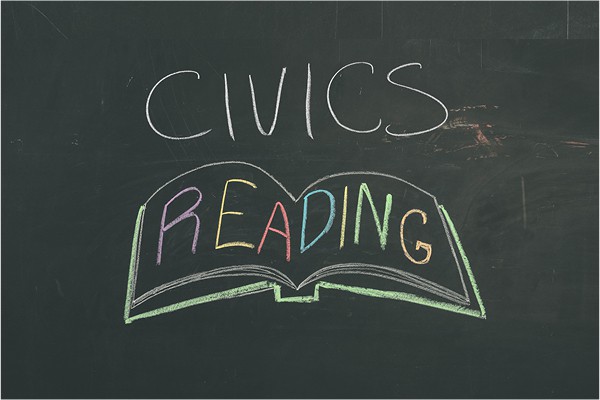States should embed civic content into statewide reading assessments, writes Ross Weiner of the Aspen Institute’s Education & Society Program in an article in The 74.
“This simple change would incentivize more attention to civic learning while making reading tests more engaging, equitable and accurate” he writes.
“Including civic content on every grade’s reading test is low-hanging fruit because it encourages engagement with meaningful issues while signaling to teachers the importance of covering social studies content — all of which improves literacy instruction. While phonics (knowing letter sounds) and decoding (putting together sounds to make words) are essential foundational skills, they are not sufficient for proficient reading. Students also need background knowledge to make sense of what they are seeing on the page. When students are given a text about a topic they are familiar with, they perform better on reading tests. Conversely, students perform more poorly when confronted with texts on topics they’ve never learned about, even if they have strong reading skills.
“Embedding civic content in reading tests would make teachers’ jobs easier and support better student learning outcomes. Every state already has adopted civics standards, and almost all state English language arts standards include expectations for reading and writing in science and social studies.
“Including a focus on civic learning in reading tests is a simple solution that can be implemented by state education commissioners and testing directors without changing any laws or regulations. This shift should be done with key stakeholders through an open and inclusive process. Leading with public engagement and input creates the opportunity to share the rationale and build trust with educators, parents and policy leaders, minimizing the risk that this becomes a polarizing idea.
“In 2012, the late Supreme Court Justice Sandra Day O’Connor said, ‘the only reason we have public school education in America is because in the early days of the country, our leaders thought we had to teach our young generation about citizenship … that obligation never ends. If we don’t take every generation of young people and make sure they understand that they are an essential part of government, we won’t survive.’
“Reading tests can signal the importance of civic learning and lead to more time and attention to this vital content.”
The 74




